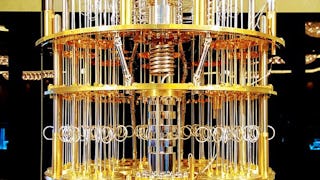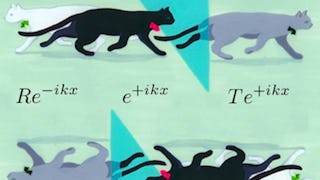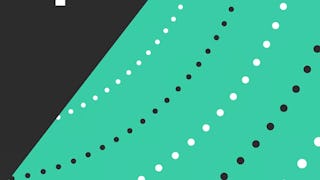This course is aimed at first year undergraduates to experienced researchers looking for an overview of quantum computing and a more detailed understanding of quantum error correction, with specific focus on the type of quantum error correction successfully demonstrated in 2024 at Google. Questions and projects are provided to build familiarity with the theory and software tools used in the field. The course starts with an overview of various quantum computing technologies, followed by detailed sections on quantum states and circuits, quantum errors and error detection, the mathematical formalism of stabilizers and the surface code, and finally the software tools Stim and Crumble, both of which are actively used by researchers in the field.



Hands-on quantum error correction with Google Quantum AI

Instructor: Dr. Austin Fowler
Access provided by Toshiba Software India
19,978 already enrolled
(157 reviews)
Recommended experience
Skills you'll gain
Details to know
8 assignments
See how employees at top companies are mastering in-demand skills

There is 1 module in this course
By the end of this course, you'll have implemented the surface code, a leading error correcting code in quantum computing. Additionally, you'll have used our library Stim to simulate your code many times, and used the results to estimate the theoretical hardware error rate required to achieve robust error correction.
What's included
9 videos9 readings8 assignments2 ungraded labs
Instructor

Offered by
Why people choose Coursera for their career




Learner reviews
157 reviews
- 5 stars
73.24%
- 4 stars
18.47%
- 3 stars
4.45%
- 2 stars
0.63%
- 1 star
3.18%
Showing 3 of 157
Reviewed on Dec 16, 2024
Very good overview of how error detection works in the quantum world.
Reviewed on Sep 3, 2025
Excellent course, but it should be rated advanced and not intermediate. Some of the questions on exam require knowledge outside of the course not covered in lecture videos.
Reviewed on Dec 16, 2024
AWESOME COURSE MATERIAL. Wish more and more like this in future which more closer to practical quantum computing applications.
Explore more from Computer Science

Fractal Analytics

University of Maryland, College Park



